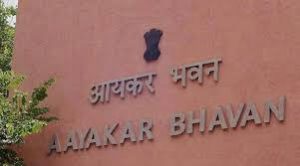The Central Board of Direct Taxes (CBDT) has made it clear that the 1 per cent tax collection at source (TCS) — introduced in this year’s Budget — will apply only to the cash component and not the entire sale consideration. This has been conveyed in a clarificatory circular issued by the CBDT on Friday.
To curb the cash economy, Budget 2016 had introduced a provision in income tax law requiring the seller to collect 1 per cent tax at source from the purchaser on the sale in cash of certain goods or provision of services in excess of ₹2 lakh.
Q&A format
The circular — in the form of question and answer — has been issued to clarify the applicability of the provision where the sale consideration received is partly in cash and partly in cheque
TCS will be applicable only on the cash component of the sales amount, and not on the whole of sales consideration, the CBDT circular said.
For instance, if goods worth ₹5 lakh are purchased for ₹2 lakh in cheque and ₹3 lakh in cash, 1 per cent tax will be levied only on ₹3 lakh.
Also, in cash-and-cheque transactions where the cash component is less than ₹2 lakh, there won’t be any TCS, the CBDT clarified. Further, TCS will not be levied if the cash receipt does not exceed ₹2 lakh, even if the sale consideration exceeds ₹2 lakh, said the circular.
Amit Maheshwari, Partner at CA firm Ashok Maheshwary & Associates, said the CBDT has rightly restricted the 1 per cent TCS to the cash component. This is in line with the Centre’s objective to curb the cash economy and target the expenditure side of black money, he noted.
Rahul Jain, Partner, Nangia & Co, said the Centre’s constant efforts to clarify the law and avoid possible disputes are heartening. In the absence of clarification, various local trade associations, head offices of stores selling high value items, etc had taken a conservative position.
“While it is excellent to see the Centre pulling all stops to nip disputes in the bud, one wishes the law was drafted better to avoid confusion in the first place,” he added.



